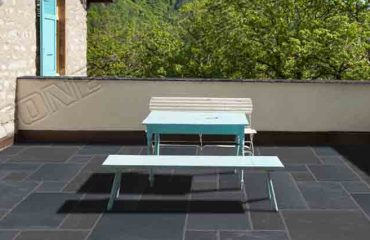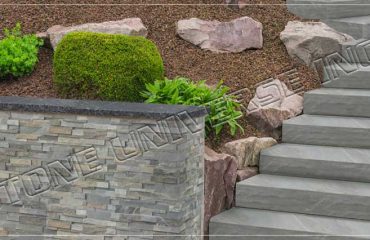The old-world charm of Natural stones never fades away with time. It is a Timeless beauty that tells the tales of a legacy behind them. For ages, we have seen that many historic structures have been made with the use of these Natural building stones which give a tinge of grace and elegance to them and they are standing stern and tall to date. This is because they are exceptionally durable, strong, and long-lasting. Also, not to go oblivious about certain myths attached to it that define these stones as way high on cost and maintenance. Therefore installing Natural Stones in the surroundings is regarded as the ostentations of riches which is in reality a misconception.
Be it Natural Stone or any other similar replicas, Upkeep, maintenance, and care are required by all. If you make a mistake in overlooking its preservation, you will obviously damage your own beautiful surroundings. After all, nurturing these quarried stones requires some of your time, patience, and precision along with little extra effort. Along with some synthetic-based remedies, there are a few homely techniques that can prove useful in taking good care of the corners cladded with stone materials. Let us give a quick glance at the ways to protect, clean, and upkeep these Natural Stones.
CLEANING OF NATURAL STONES – SOME HOME SOLUTIONS
It says if you want to start up with something, start from your home first. This is the era of DIYs where we experiment with a variety of things and come up with a solution. Similar is the tried-and-tested ways of the past when there was no such technology that could tell us a way of dealing with such made-up products of the present. So people have found solace in inventing some home techniques of dealing with rust, fats, and dirt accumulation on the surfaces. Be it fire-pits, countertops </Blog link for Countertops>, staircase, chimneys, barbeque areas, or the floor of your living room, they work on one and all.
- The first and foremost way to deal with natural stones is to clean them with a sponge or a soft cloth or brush. No hard or coarse material should be used that could harm their charm. Also, we should avoid using vacuum cleaners that have metal and coarse attachments to prevent our surfaces from any damage.
- In case of stains of dirt or fats, neutral dishwashing soaps can be used. A spoon of this detergent combined with a good amount of water should be made use for cleaning.
- Avoid the use of acidic cleaning agents for these materials. In spite of acidulous cleansers, you may use non-acidic ammonia which will only clean the spots rather than damage the surfaces.
- Stains like Paints are also a cause of the ruining of the elegance of natural Stones. Therefore, a small amount of stain can be cleaned with a normal cleaning agent that should be stone-friendly. Efflorescence is yet another type of stain which is powdery in nature and appears on newly installed stones. This normally happens near the poolside. To get rid of it, generally use mop or a dry-duster to wipe them off. It would not be recommended to clean them with water as this will multiply the problem rather curbing it.
- Avoid placing hot pans, utensils directly on the surface; rather you may use silicon mats that do not allow heat to cross down to the surfaces.
- While organizing arenas with these organic stones, be very particular in handling acidic foods like spilling citrus fruit juices, harsh chemicals on these surfaces.
- To prevent scratches on the countertops, make use of chopping boards in spite of showing your skills on kitchen slabs. Scratches on the Limestone can be removed by any soft polishing agent.
- Color choice plays a vital role in keeping the sealing intact of the Natural Stone. This is also natural that sealing wear-tear happens with the passage of time, for light-colored, it withers a little early but dark-colored stones remain intact for a longer period of time.
These were however the general ways of cleaning and taking the precautionary measure of Natural Stones. But, it can vary depending upon the stone texture, color, finish, base or type of stain. The commercial ways include the use of synthetic acidic substances which may not harm the stone there and then but have detrimental effects in the long run. Also comparative to the home-based ideas, they are a little costlier as it involves the hiring of a cleaning contractor or a stone expert. So it will be good that at every step, one should take certain preventive measures to avoid the damage. After all, Prevention is better than Cure.




